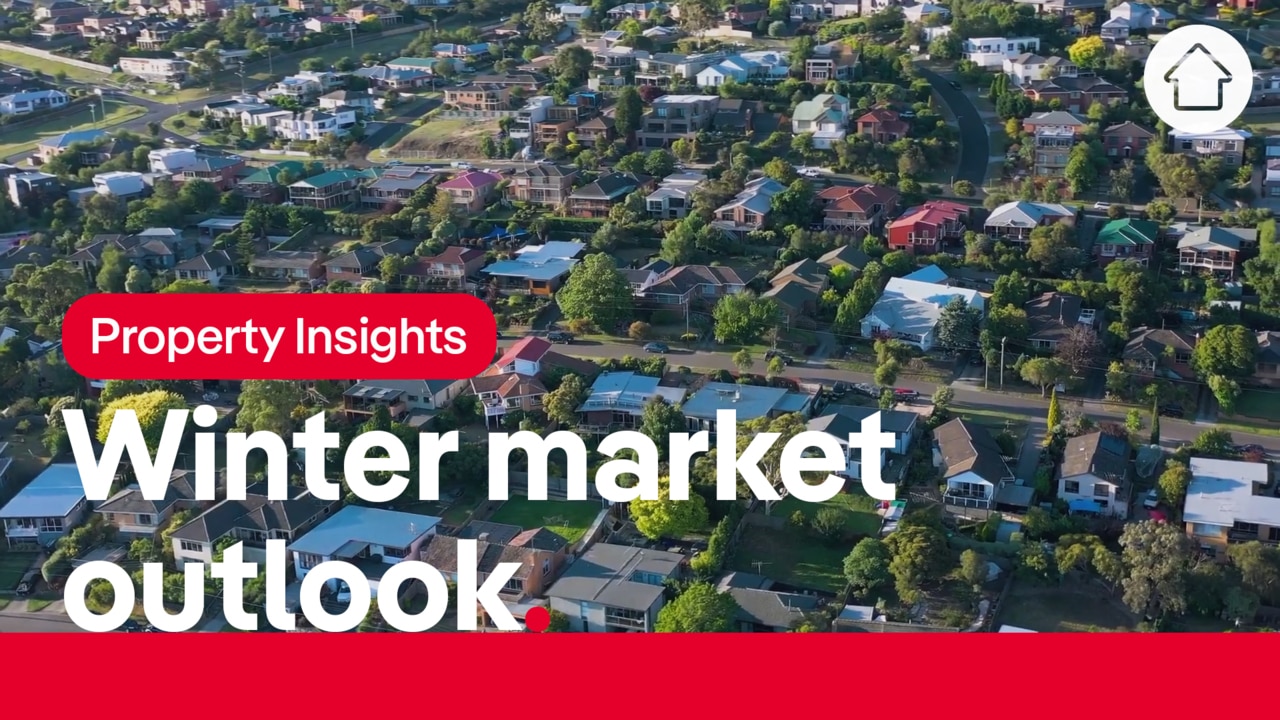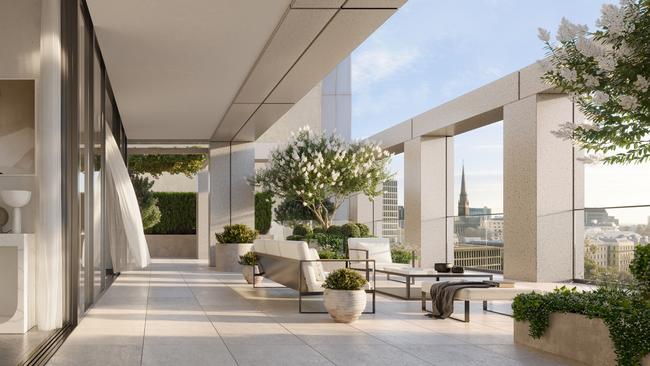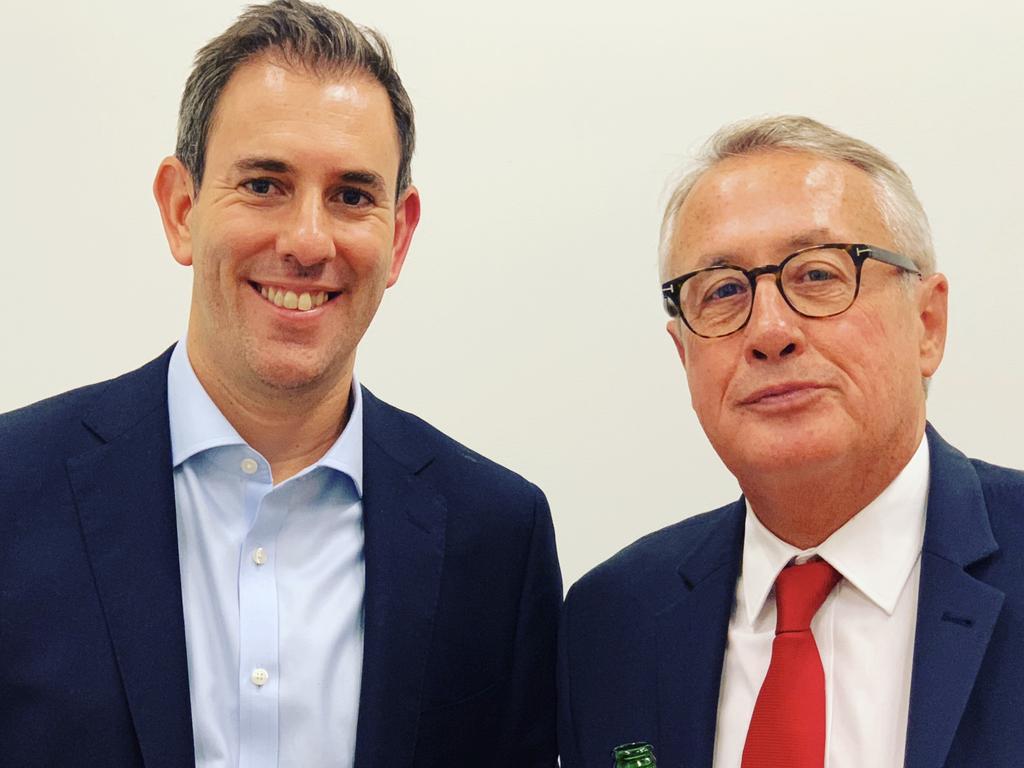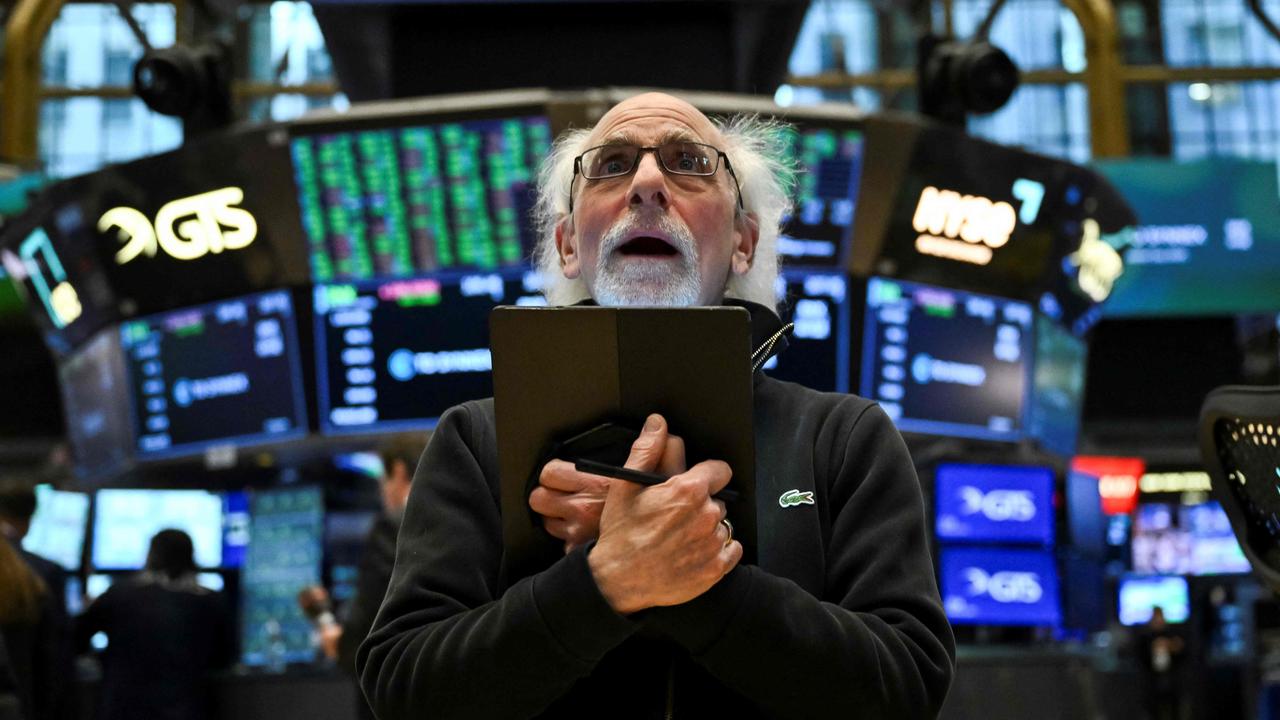Property crunch hits Cbus super but fund on track to post 8.5pc annual return
The $83bn building industry-backed fund remains committed to office towers as a long-term play in the face of a slump in values.

The $83bn super fund Cbus has declared it remains committed to CBD offices and commercial property as a long-term investment, despite surging interest rates and more people working from home forcing a crunch in valuations across its property holdings.
Negative overall property returns have taken the shine off a rebound in the performance of the building industry-backed fund, which is on track to deliver returns of 8.5 per cent for members of its default super fund this financial year.
The jump in Cbus’ investment returns from minus 3.8 per cent last year has kept members ahead of surging inflation and is likely to set the tone for a more positive year for the big industry funds that dominate the nation’s superannuation industry.
Following a surge in performance through the early years of the Covid pandemic, last year’s sharemarket slump pushed most big retirement funds into negative annual returns for the first time since the global financial crisis, which in turn hurt the nation’s super savings.
But the indicative numbers from Cbus offer the first insight into how the big five funds – AusSuper, ART, Hostplus and UniSuper – are navigating the commercial property downturn.
For Cbus, its latest returns were driven by a rebound in global and local shares as well as a strong infrastructure performance and increased returns from private credit. However, this was offset by sharply weaker commercial property markets – particularly for CBD office towers.
Given its construction industry membership base Cbus has traditionally had a higher exposure to commercial property than other big industry super funds. In recent years it has expanded more aggressively into shopping centres and operates its own high-end residential property development arm.
Cbus hasn’t broken out its final property numbers, some individual property exposures were hit with “material” losses, although valuations across other assets held up.
“Obviously, property has added headwinds and it’s on track for a negative return to the year. But even with that there was a modest impact on the overall return which really goes to the diversification of the overall portfolio but also within property,” Cbus chief investment officer Brett Chatfield told The Australian.
“We remain very committed to property as a long-term exposure. If anything, these sort of more difficult periods can give rise to good opportunities to deploy new money. So we are actively looking at opportunities where it makes sense”.
Property headwinds
An indicative annual return of 8.5 per cent (the financial year finishes at the end of this month) represents “a very good absolute return given the challenging environment over the last year,” Chatfield says.
It puts Cbus on track for a three-year rolling return of around 7.6 per cent, a number also outpacing inflation, which averages just under 5 per cent over the same period.
With surging interest rates combined with softer demand for office towers coming out of the Covid pandemic, office landlords and funds managers have written off billions of dollars in property holdings in recent months. Last week one of the country’s biggest owners of office towers Dexus sliced $1bn from its valuations given market weakness.
Cbus’ property portfolio like all its unlisted assets is valued quarterly, with the negative returns coming through the June quarter. Around 10 per cent of the $83bn fund is exposed to property. By comparison the $270bn Australian Super has 6.6 per cent of is assets against property and the Canberra-backed Future Fund has an allocation of 6.5 per cent.

Chatfield says there is different performance across property with high-end residential developments such as the recently completed 17 Spring Street project in Melbourne’s CBD delivering strong returns. At the same time Cbus has diversified into industrial and retail property in recent years, which have been holding their value.
He said the focus for Cbus has been on high-end office towers with high environmental ratings and long-term leases, including government and top-tier corporate tenants. These investments have held up where second-tier office space has been hit harder.
“That has served us very well. But if we think about the outlook clearly with working from home, that’s impacting increasing vacancies and across the broader market. What you are also seeing is this increased demand and desire for employers to move into high quality buildings.”
In April the fund joined with Canadian giant Brookfield to develop a $500m premium tower at Perth’s Elizabeth Quay.
Despite a squeeze on housing, Chatfield is cautious on apartment developments for now given delays in development approvals and surging construction costs. However, apartments are likely to emerge as a bigger investment over time.
Cbus recently mapped out an aspirational target to reach as much as $200bn in member funds in the next five years as well as boosting offshore investment while increasing infrastructure and private equity exposure locally. Elsewhere, it has been pushing deeper into alternative assets including biotech-backed investments as well as emerging space technology.
The fund has recently undergone top-level change with the appointment of Kristian Fok as chief executive and over the past year absorbed the smaller Media Super and electrical trades-backed EISS Super. Cbus is also in the process of bringing more of its funds management in-house, a move it says will deliver savings for its 875,000 members.
Despite this year’s investment rebound, Chatfield has urged members to temper their expectations around returns for the coming year.
He is tipping a mild recession in the US, which is likely weigh on sharemarkets there. In Australia the probability of a recession has increased on the back of the RBA’s aggressive interest rate hikes, but at this stage he expects the economy to just avoid a prolonged downturn.
Given the tougher economic outlook, Chatfield has tilted Cbus’ investment portfolio to a more defensive position moving into the new financial year. This includes sitting on more cash, holding more Australian bonds and infrastructure while being underweight on both local and international equities.
“We are more defensively positioned going into next year, particularly in regards to equities, but we’re not full negative or maximum defensively positioned. However we certainly expect returns to probably be a bit softer in the next year than they were this year,” he says.
johnstone@theaustralian.com.au







To join the conversation, please log in. Don't have an account? Register
Join the conversation, you are commenting as Logout